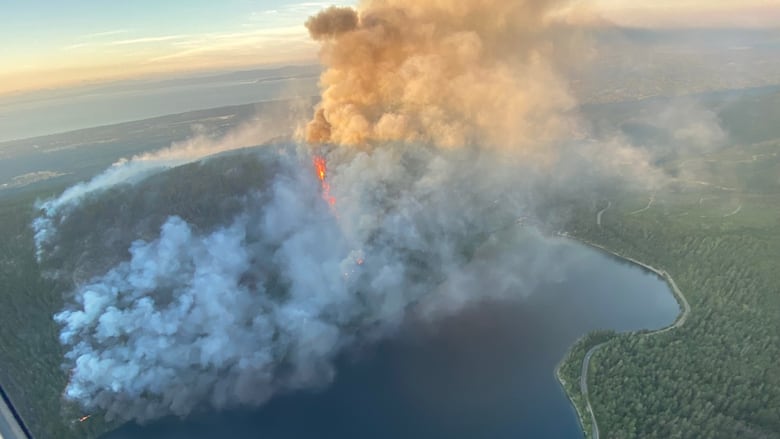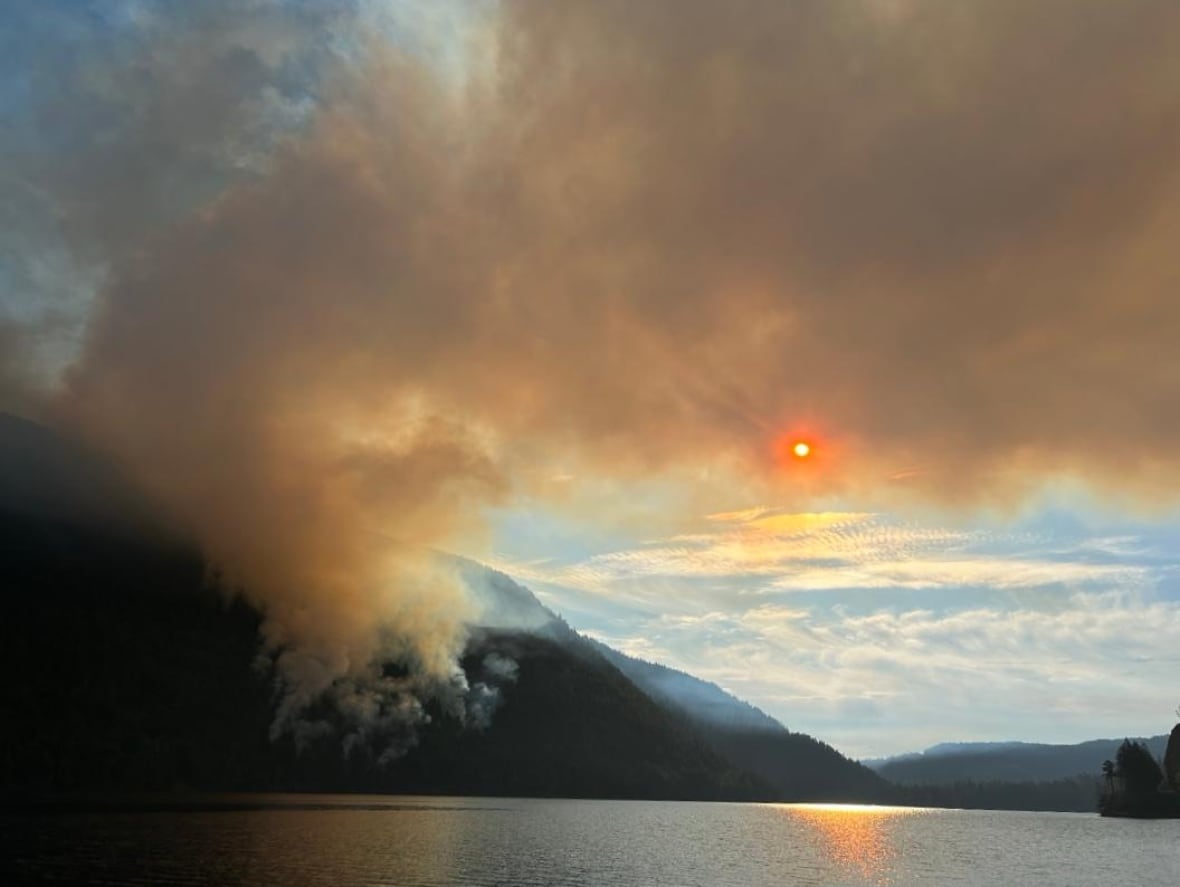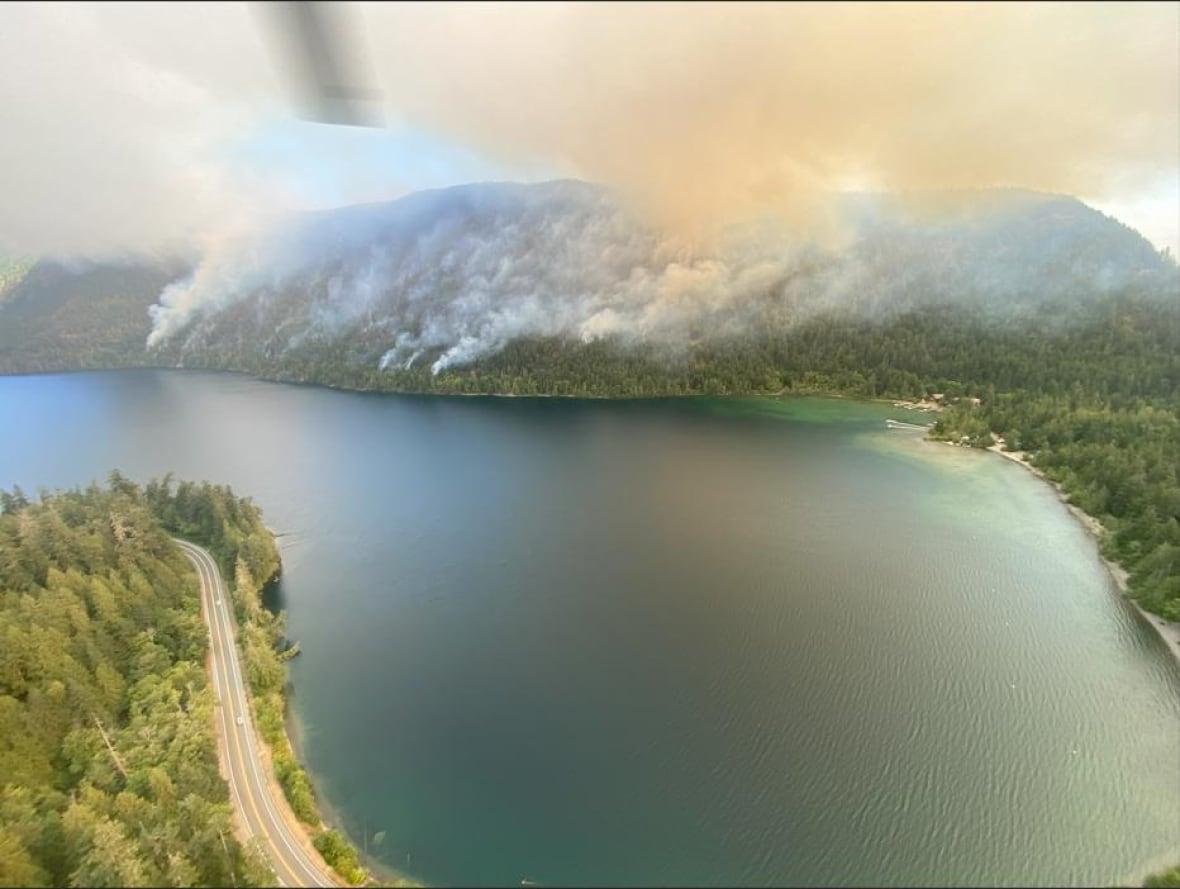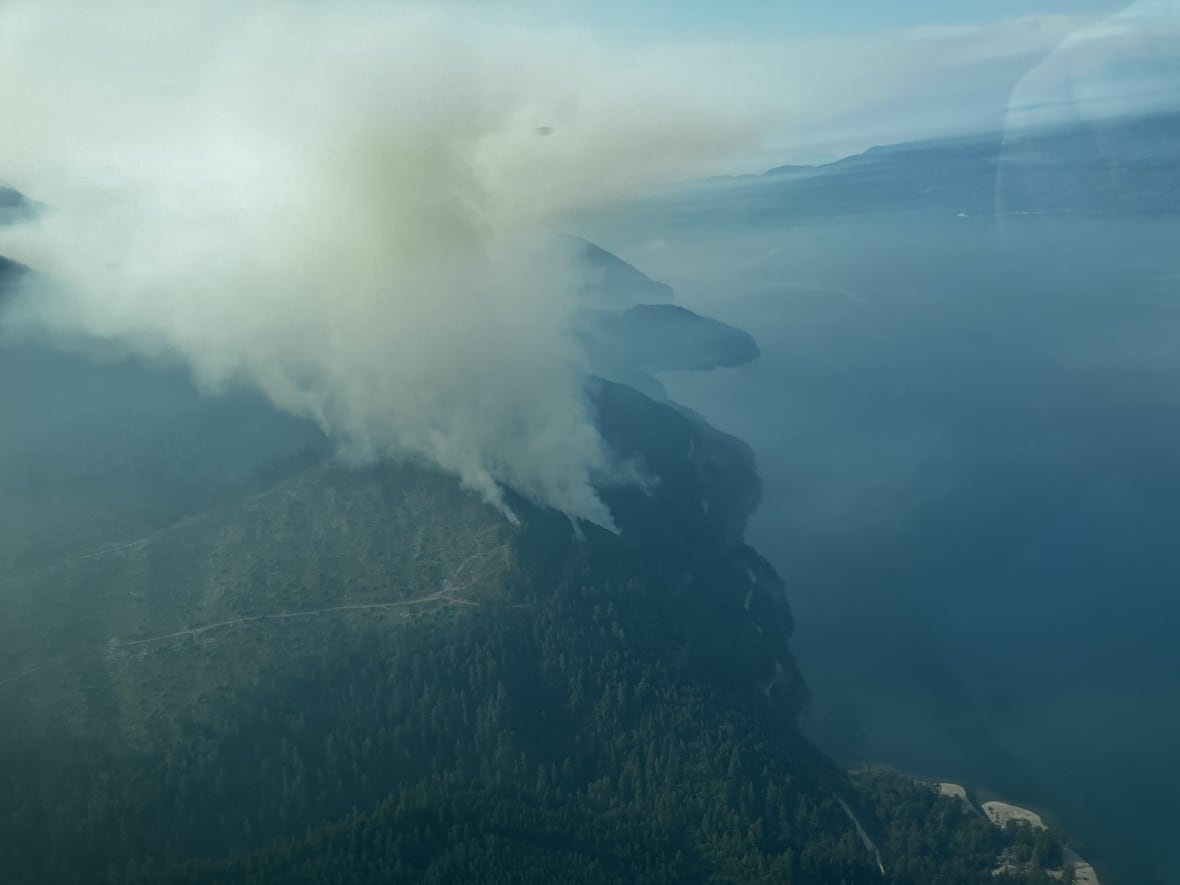Evacuation orders issued for nearly 400 properties on Vancouver Island due to wildfire
Latest evacuation order includes all of Little Qualicum Falls Park and additional properties

Nearly 400 properties and a provincial park on the east coast of Vancouver Island have been placed under an evacuation order due to a wildfire burning out of control.
The Regional District of Nanaimo expanded its evacuation order in response to the fire on the north banks of Cameron Lake, about 60 kilometres northwest of the port city of Nanaimo, which is about 100 kilometres northwest of Victoria and home to about 120,000.
The Wesley Ridge wildfire has now grown to an estimated size of 373 hectares, according to the B.C. Wildfire Service (BCWS) and is among nearly 150 wildfires burning around the province. It is suspected to have been caused by human activity.
District spokeswoman Rebecca Taylor said most of the 393 properties under evacuation order are homes, which means residents are required to leave immediately. Another 238 properties are under evacuation alert, meaning residents need to be ready to leave at a moment's notice.
UPDATE: the Regional District of <a href="https://twitter.com/hashtag/Nanaimo?src=hash&ref_src=twsrc%5Etfw">#Nanaimo</a> has EXPANDED the Evacuation Alert to additional properties in the Little Qualicum River Village area due to the Wesley Ridge <a href="https://twitter.com/hashtag/BCWildfire?src=hash&ref_src=twsrc%5Etfw">#BCWildfire</a>. Residents in the impacted area must be ready to leave on short notice. More info:… <a href="https://t.co/BkoV8ruQ1G">https://t.co/BkoV8ruQ1G</a> <a href="https://t.co/LRJuY92T3y">pic.twitter.com/LRJuY92T3y</a>
—@EmergencyInfoBCA post on B.C. Parks' website said an evacuation order was in place which includes all of Little Qualicum Falls Park, which has two campgrounds, trails and picnic facilities.
"To support the work of wildfire crews, all visitors should leave the park immediately and remain out of the area until further notice," the advisory said.

Highway 4, the longest east-west vehicle route on the island remains open, but Douglas Holmes, director of the emergency operations centre for the Regional District of Nanaimo, is urging everyone using the road not to stop and look at the fire.
"If you're travelling on Highway 4, do exactly that, keep travelling please," Holmes said, adding it's important to keep the traffic flowing especially if emergency vehicles need to use the route.
Officials said they had no reports of homes being lost due to the blaze on Saturday.
Christi Howes, a BCWS fire information officer, said some firefighting equipment and railway trestles had been lost in the blaze, which was burning in tough, inaccessible terrain.
"That said, workers and staff were tactically withdrawn from that area safely," she said, adding no one was injured.
The fire's northeast flank, which is closest to homes, is the priority for wildfire crews, who aren't expecting significant precipitation over the long weekend, Howes said.

Poor air quality
Meanwhile, another fire south of Lytton, B.C., has led to poor air quality, with the Cantilever Bar wildfire also prompting evacuation orders for two properties in Lytton First Nation.
That blaze covered an area of 12.62 square kilometres as of Saturday morning, though the BCWS said it did not see appreciable growth overnight.
Special air quality statements are in place for the Fraser Canyon and parts of the southern B.C. Interior due to the blaze.
The areas covered by the advisory include the South Thompson, 100 Mile, and Cariboo regions including Williams Lake.
Poor air quality is also forecast for the Fort Nelson region in northeast B.C. due to wildfire smoke.
The special air quality statements are being accompanied by a number of severe thunderstorm watches that cover much of the eastern half of B.C.
On Friday, the BCWS noted that thousands of lightning strikes over the preceding two days had caused the number of blazes in B.C. to double in the span of 24 hours.
Karley Desrosiers, another BCWS fire information officer, said there had been 48,000 lightning strikes in B.C. since Thursday.
"Although we do have lightning in the forecast, we're seeing more rain accompanying the lightning," she said on Saturday.
"[It's] less likely to start new wildfires when rain accompanies that lightning, but always a possibility, just given the dry conditions that we've seen in the past week especially."
Campers urged to stay away from Harrison Lake
The Bear Creek wildfire, detected last week, has prompted road closures near Harrison Lake in the Fraser Valley, a popular recreation spot in the Lower Mainland.
Campers are being urged to stay out of that area over the long weekend, with the Fraser Valley Regional District issuing an evacuation alert for the North Cascade Bay area.
"There is increasing hazard along the Harrison East Forest Service Road due to wildfire activity, including rockfall," according to a BCWS update late Friday night.
"Road closures will remain in place through the long weekend and until further notice."

With files from The Canadian Press

